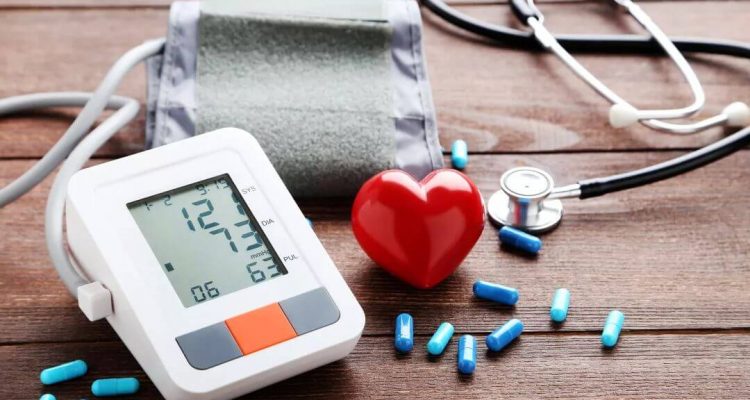
Named foods that are crucial for reducing high blood pressure
0
Hypertension is called a “silent killer”, and doctors are making the diagnosis more and more often. In the meantime, there are simple ways to help prevent the development of hypertension or lower pre-existing high blood pressure.
Around one in three adults in the UK have high blood pressure, but half of the cases are undiagnosed and untreated. In England alone, more than five million people with high blood pressure have not been diagnosed with hypertension, which means that, apparently, they will not do anything about it.
There are simple dietary changes that can help prevent hypertension or lower pre-existing high blood pressure. Four rules to follow if you need to lower high blood pressure or avoid developing hypertension, according to the recommendations of the British Heart Foundation (BHF), which funds research in the field of cardiovascular diseases.
Whether you want to lower high blood pressure or prevent it from rising, a balanced diet is key.
The BHF Foundation recommends: “everyone should strive to have a balanced diet and avoid fad diets that give quick results, as they do not provide the necessary balance of nutrients”.
According to the Foundation's experts, the best the way to understand this principle is to consider that foods are divided into groups.
Try to eat:
- A lot of fruits and vegetables
- Many carbohydrate (starchy) foods such as bread, rice, potatoes and pasta. If possible, choose products from whole grains
- Milk and milk products
- Meat, fish, eggs, legumes and other products (except dairy) that are a source of protein
- Only a small amount of foods and drinks high in fat and/or sugar
When possible, choose foods and drinks with lower fat, salt and sugar content.
< h2>Eat more fruits and vegetables
A balanced diet should include at least five servings of fruits and vegetables per day.
Experts from the BHF Foundation recommend eating a variety of fruits and vegetables — fresh, frozen, dried or canned.
Experts clarify: “natural unsweetened fruit juice without additives and various legumes are considered a portion, but they make up a maximum of one of five daily servings, regardless of how much you eat or drink in one day.”
A serving is about a handful (80 grams)
- One medium-sized fruit , for example, an apple, orange, pear or banana
- Two smaller fruits, for example, plums, apricots and mandarins
- One piece/slice of a large fruit, for example, melon, pineapple or mango
- 7-8 strawberries
- 2-3 tablespoons of smaller berries or grapes
- A small bowl of salad
- 3 tablespoons (with tops) of vegetables
- 3 tablespoons (with tops ) legumes-peas, chickpeas, lentils or beans
- A glass (150 milliliters) of fruit or vegetable juice
- One tablespoon of dried fruit
Eating fruits and vegetables helps to significantly lower blood pressure due to the large amount of potassium they contain, as well as vitamins and other minerals.
“In addition, they are low in calories and high in fiber, which helps digestion and promotes strengthening the cardiovascular system”, BHF experts emphasize.
Choose the right fats
It is important to eat the right fats to maintain the health of the cardiovascular system .
If high blood pressure and high cholesterol levels are associated with eating too much fat, a person is at increased risk of heart disease and stroke.
The BHF memo says: “ an excess of saturated fats in the diet can lead to an increase in the amount of cholesterol in the blood, which can increase the risk of coronary heart disease.
More beneficial are unsaturated fats, monounsaturated fats, found, for example, in olive oil, canola oil, almonds, unsalted cashews and avocados. Or polyunsaturated fats, which are found, for example, in sunflower oil and vegetable oil, walnuts, sunflower seeds and fatty fish.
Another type of fat, known as trans fat, can raise blood cholesterol levels.
p>
BHF specialists recommend:
- Replace saturated fats in the diet with a small amount of monounsaturated and polyunsaturated fats
- Reduce the amount of consumed products that contain trans fats
- In addition, it should be remembered that all types of fats of animal origin and vegetable oils are very high in calories, so even unsaturated fats should be consumed only in small quantities.
Reduce the amount of salt in the diet
Salt is often “hidden” in the products we buy, so it can be difficult to understand how much salt we eat or how to reduce its amount in our diet.
BHF experts warn: “consuming too much salt can increase the risk of hypertension, and high blood pressure increases the risk of coronary heart disease”. water in the body, and with its excessive use, the presence of excess water in the blood means that additional pressure is exerted on the walls of blood vessels, which leads to an increase in blood pressure.
Excess salt in the diet can also be the cause of a stroke , kidney diseases and some types of dementia.
The daily amount of salt consumed in food should not exceed six grams, but according to statistics, we eat an average of about eight grams.
Blood Pressure UK experts recommend:
- No add salt while cooking (try adding different seasonings and wait until your taste buds get used to less salt)
- Avoid using very salty flavorings (ready-made sauces, soy sauce, bouillon cubes and sauce – granules can be very salty. Look for low-salt additives or try some new types).
- Use extra ingredients when cooking , which contribute to the enrichment of the taste and aromatic properties of the dish (add herbs, spices and seasonings, such as chili pepper, black pepper, ginger, lemon or lime juice).
- Taste the food before adding salt (sometimes people salt food as a habit, do not forget to try it first)
- Remove the salt shaker from the table (you will be less likely to want to salt your food)
- Be careful with sauces (sauces on the table next to the salt shaker, such as mustard or ketchup, can also be very salty )
- Try salt substitutes (if you really can't go without salty, try using a small amount of low-sodium salt substitute).
- Make your own marinades (if you marinate meat or fish in lemon or lime, or with yogurt and spices, there is no need to add salt for taste)
- Reduce the consumption of foods with a high salt content (cooking sauces , table sauces such as ketchup and mustard, cheese, bacon, olives and pickles can contain high amounts of salt).
- Read the information on the package (salt content varies greatly. Before buying products, read the information on packaging and compare them with other products – you can often find options with lower or reduced salt content)
- Choose low-salt breads and cereals. They can contain a lot of salt, and since we eat these foods in large quantities, the salt content of the diet can increase. Read the information on the labels and compare brands)
- Avoid eating smoked meat and processed meat products (they contain a lot of salt, so limit the amount of these products in your diet).< /li>
- If you are going to eat out, call the establishment in advance (and ask if they can prepare food for you with less salt. This is not always possible, but it is always worth asking. Also, there may be other, less salty dishes on the menu)< /li>
- Use the FoodSwitch app (it compares the salt content of similar foods, making it easy to find healthier options).
- Be persistent when trying to reduce the amount of salt in your diet. If the food seems fresh at first, do not salt it. After a few weeks, your taste buds will adjust and you will begin to enjoy eating less salt. This is about the same as getting used to drinking tea without sugar.
Reduce the amount of sugar in your diet
Did you know that drinking too much can a lot of sugar cause high blood pressure?
Experts from the organization Blood Pressure UK explain: “foods with added sugar are usually high in calories, but often have very little (or no) nutritional value .
Excess calories can contribute to excess weight gain, which can lead to increased blood pressure. In addition, the use of such products can cause diabetes.
High blood pressure and diabetes increase the risk of cardiovascular disease and stroke, especially if you have high blood pressure and diabetes.< /p>
In addition to the fact that the consumption of too much sugar leads to weight gain and negatively affects the state of the cardiovascular system, it causes tooth decay.”
The main products that are sources of sugar (from the use of which should be avoided if possible) are:
- table sugar
- jam and canned products
- confectionery-sweets, candies and chocolate
- biscuits, rolls, cakes and cakes
- alcoholic beverages
- hot, spicy fruit and vegetable sauces, such as chutney, ketchup, mayonnaise and salad dressings
- ready meals from semi-finished products
< li>fruit juices and soft drinks

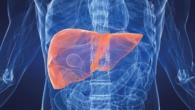

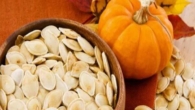

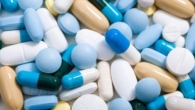
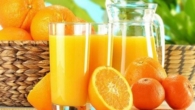
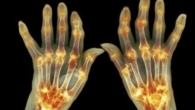
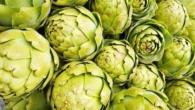
Leave a Reply